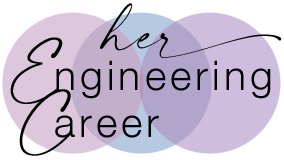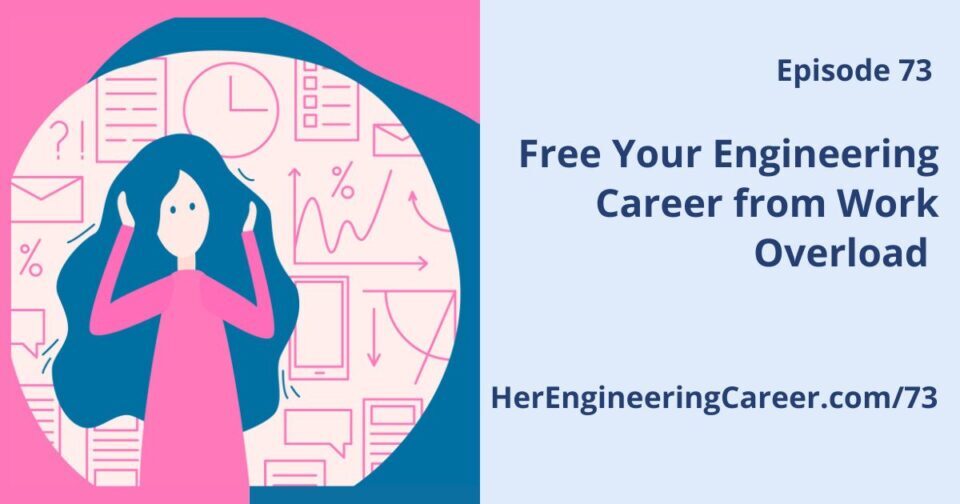Episode Transcript
You want to make sure you’re meeting expectations as an engineer. You want to successfully bring projects to a conclusion. Bring your skills to bear in the best way to solve problems and meet the mission.
But you always feel so overloaded with work. Your engineering workload is way more than one person can do. You feel behind. You feel swamped. When it gets really intense, you slip into overwhelm.
When will it ever stop? Well that’s what we’re gonna talk about today.
Pretty much everyone is overloaded with work. Remember back in Episode 10 on Time Satisfaction we talked about the fundamental axiom of time management: there’s always more work to do. You never get everything done.
Everyone’s overloaded. Those people who seem like they have everything perfectly balanced? They’re overloaded too. They’re just better at managing it.
But there’s a trick. The trick is not to stop the flow of work coming in. That’s not even possible. (And, frankly, the fact that there’s work to do is a good thing.)
The trick is to handle the work in a way that gets you where you want to go. In such a way that you’re able to enjoy the process. This is what brings fulfillment in your career.
Even though this is a simple concept, it’s hard for many women engineers to embrace. You’re conditioned to think you’re working for someone else, for another’s purpose and mission. And while this is true, you should also be able to integrate your own visions and aspirations.
This is the part you’re not conditioned to do. It’s no wonder that you feel behind and overworked.
How to Manage Your Engineering Work to Get Where You Want to Go
So how do you handle work in a way that gets you where you want to go and in a way that allows you to enjoy the process? I have a 2-part solution.
I want to share with you 2 philosophies that combine a lot of the concepts that we’ve talked about in my previous podcast episodes.
By applying these 2 philosophies in your job, you’ll get out of that feeling of overload. And with more energy and motivation:
- Do your best and that’s enough. – This first idea is about doing what you can do within the limits of time and according to priorities.
- Optimize your outcomes by having reasonable expectations and taking breaks.
- Take time every day to notice and acknowledge what you accomplish.
- Realize there’ll be unfinished tasks, and be comfortable with that.
“Just do you best” is often the advice you’ll get when you complain of work overload.
And actually that’s pretty good advice. I’ve had bosses tell me “Just do your best.” I’ve had teachers say it. It’s something my mom would say.
I like this advice because it’s doable. And in a way it’s reassuring. No matter what’s going on, I can always just focus on doing my best. And that’s enough.
But doing your best means you’re putting yourself into it. And that’s the second philosophy:
- Do what’s most important to you. – This second idea is about knowing yourself and where you’re headed. Then make that the basis of your work every day.
- Know your energetic center: your values, skills, strengths, and passion.
- Have a career vision and keep it in focus.
- Own your workload: Set your own priorities and define your boundaries so you can decide what work to let go.
I encourage you to apply these philosophies in your engineering work.
Release the Stressful Grip Your Engineering Workload Has on You
As in most career strategies, you won’t reach perfection here. But if this is your aim and you’re taking these two ideas into account, you’ll feel more fulfilled.
Rather than trying to accomplish the sheer volume of work, you’ll be doing what you can of the work that’s most important – by your own definition. You’ll rise above that work overload state and instead feel satisfied and accomplished.
You just can’t do everything. So you may as well define what’s most important, and do that.
As you reach higher levels in engineering and leadership, your workload only increases. Having practiced these approaches, you’ll be ready to handle the challenge.
You’ll learn how to release the stressful grip that workload has on you. So you can attend to the more important roles you have in making decisions and growing people.
Many women engineers stop short of realizing their career visions because work overload interferes with their confidence and motivation to move up.
You now have the necessary skill to balance work and life while reaching the career goals you aspire to.
If you’d like to learn more about overcoming work overload, book a strategy session with me. We can brainstorm how you can apply these philosophies in your job for a less stressful and more fulfilling career.
Next time on Her Engineering Career Podcast we’ll update best practices for mastering meetings, including virtual ones. I hope you’ll tune in for Episode 74.

